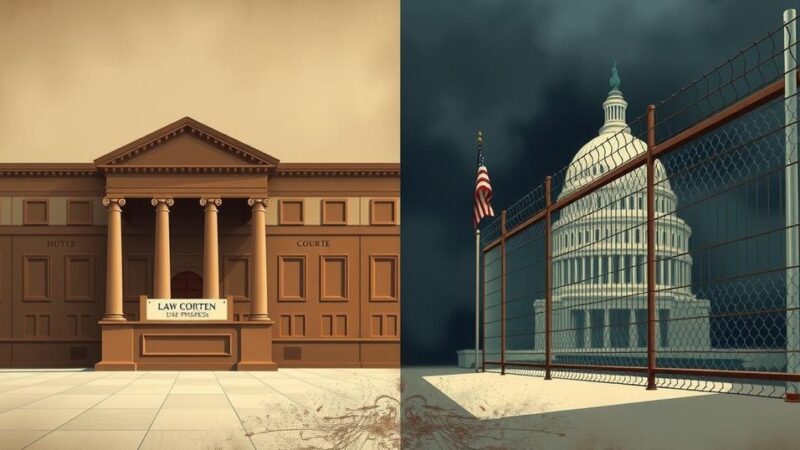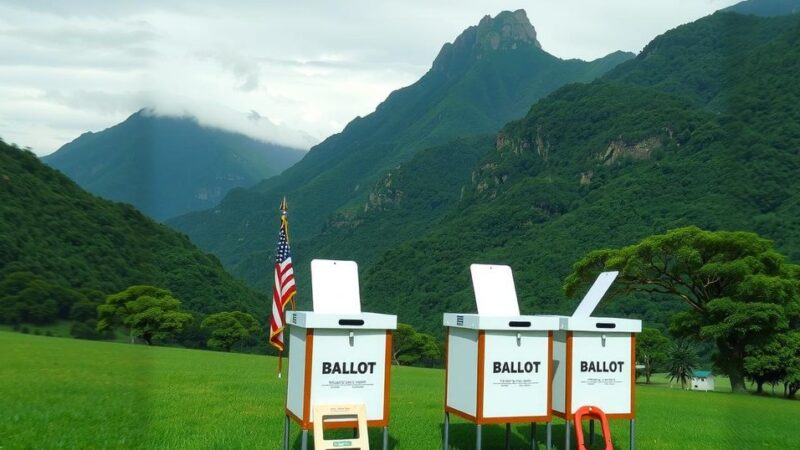The Vatican negotiated Cuba’s removal from the terrorism sponsors list, requiring the release of 553 political prisoners and easing restrictions on state entities. Despite initial hopes for reform through past papal visits, significant human rights violations persist. The Church needs to take a firmer stand against the Cuban dictatorship and support the oppressed.
Amid the final week of President Biden’s tenure, the Vatican finalized negotiations to remove Cuba from the list of state sponsors of terrorism. This act exemplified the Church’s longstanding ties with the Cuban government, prompting calls for the Vatican to cease its favorable portrayal of the regime and to act decisively against ongoing human rights violations.
The negotiated terms mandated the Cuban government to release 553 political prisoners from an estimated 1,200 currently imprisoned. Additionally, Cuba would ease restrictions on certain state-run entities, such as GAESA, which is fundamental to the regime’s economic control. In exchange, the Vatican consented to advocate for Cuba’s removal from the terrorism list.
Pope Francis did not meet expectations as a mediator. After President Trump’s inauguration, Cuba was returned to the terrorism list, halting prisoner releases and allowing the regime to leverage prisoners for political maneuvering. To date, fewer than 200 prisoners have been freed, casting doubt on the Vatican’s role in advocating for human rights.
The Vatican’s complex relationship with Cuba’s communist government has evolved over the past six decades. Initially, Pope John XXIII excommunicated Fidel Castro in 1962 due to his communist inclinations. Nevertheless, subsequent papal visits, including those from John Paul II, Benedict XVI, and Francis, offered hope for improved religious tolerance, yet real change for the Cuban populace remains elusive.
Despite Marxism and religious beliefs being ideologically opposed, Castro adapted his approach towards religion in the 1980s, strategically leveraging it. The establishment of The São Paulo Forum in 1990 united leftist parties promoting a softened relationship with religion, enabling leaders like Hugo Chávez to frame socialism positively. The Vatican’s ongoing involvement has lent credence to this agenda.
John Paul II’s 1998 visit reinstated Christmas as a holiday after a three-decade ban, a notable achievement amidst broader talks with Cuban leaders. However, the absence of criticism towards the Cuban government diluted the potential impact of his presence, inadvertently legitimizing the regime.
Pope Francis, influenced by liberation theology, has adopted an even more lenient stance towards leftist governments. His reluctance to denounce authoritarian regimes has caused skepticism among advocates for human rights who once viewed the Church as an ally.
During President Obama’s administration, major concessions involving diplomatic channels with Cuba did not yield significant improvements for the Cuban populace. Rather, these measures, facilitated by the Vatican, appeared to strengthen a regime unsympathetic to Catholic values.
Religious leaders in Cuba, such as Father José Conrado Rodríguez and Pastor Alain Toledano, face ongoing persecution, while activists like the “Ladies in White” endure violence and arrests for peaceful protests. The Vatican’s diplomatic efforts have failed to enhance either religious freedom or human rights on the island.
The Church’s moral authority is needed now more than ever, as it has historically provided hope for those in distress. Cuba’s actions have generated instability in the region, often overshadowed by other left-wing challenges.
Cuban citizens urge the Vatican to reclaim its position as a staunch advocate for the people, encouraging believers to uphold their convictions and hold the Church accountable against deceptive socialist narratives.
In summary, the Vatican’s recent negotiations regarding Cuba have raised significant concerns regarding its influence and effectiveness in advocating for human rights. Despite past papal engagements appearing to foster hope, the outcomes have often reinforced the authoritarian regime. The ongoing persecution of religious leaders and activists highlights the urgent need for the Church to reaffirm its commitment to defending human rights. Cubans call upon the Vatican to embrace its role as a champion for the oppressed and uphold moral clarity.
Original Source: www.realclearworld.com






